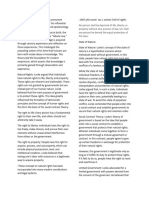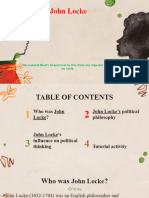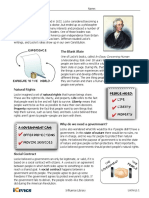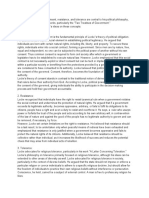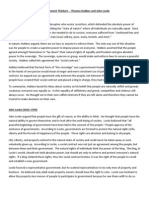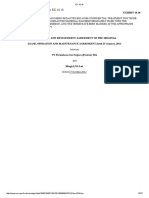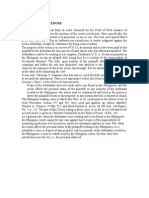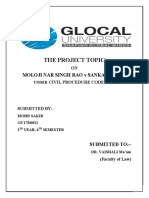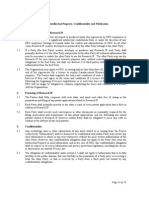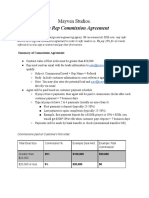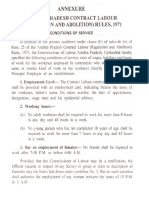0% found this document useful (0 votes)
65 views4 pagesJohn Locke Detailed Notes CSS Expanded
John Locke's political thought emphasizes human beings as rational and moral, advocating for natural rights of life, liberty, and property. He proposed a social contract where government is formed by consent to protect these rights, allowing for resistance against tyranny. Locke's ideas laid the foundation for modern liberal democracy, influencing revolutions and human rights frameworks globally.
Uploaded by
auditofficergth1Copyright
© © All Rights Reserved
We take content rights seriously. If you suspect this is your content, claim it here.
Available Formats
Download as DOCX, PDF, TXT or read online on Scribd
0% found this document useful (0 votes)
65 views4 pagesJohn Locke Detailed Notes CSS Expanded
John Locke's political thought emphasizes human beings as rational and moral, advocating for natural rights of life, liberty, and property. He proposed a social contract where government is formed by consent to protect these rights, allowing for resistance against tyranny. Locke's ideas laid the foundation for modern liberal democracy, influencing revolutions and human rights frameworks globally.
Uploaded by
auditofficergth1Copyright
© © All Rights Reserved
We take content rights seriously. If you suspect this is your content, claim it here.
Available Formats
Download as DOCX, PDF, TXT or read online on Scribd
/ 4
















